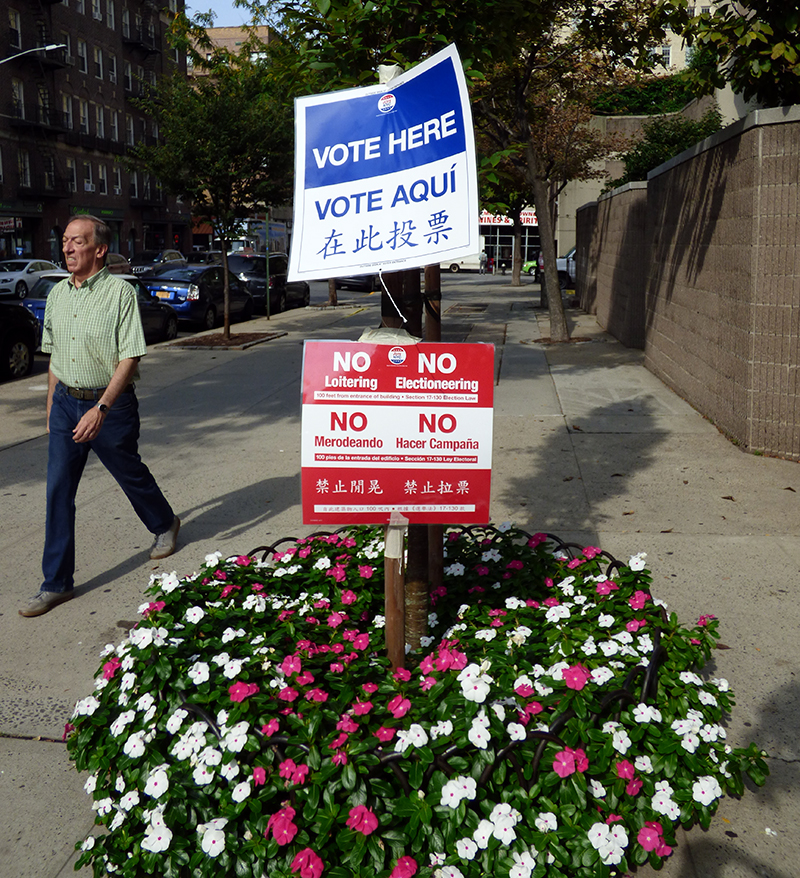Stringer report: NYC Board of Elections incompetence reaches alarming levels

An audit just released by Comptroller Scott Stringer found high levels of violations and incompetence at the New York City Board of Elections. BOE disputed many of those findings. Photo by Mary Frost
An audit released by New York City Comptroller Scott Stringer just days before Tuesday’s election shows “significant breakdowns” in poll operations by the city’s Board of Elections (BOE). Those breakdowns jeopardize New Yorkers’ right to vote, Stringer said in a statement Friday.
Following BOE’s infamous voter “purge” in April 2016 — which removed more than 100,000 Brooklyn residents from the voter rolls — the Comptroller’s Office sent staff to more than 150 poll sites to observe the three subsequent elections. Of these, 33 were in Brooklyn.
The results were dismaying. Auditors discovered:
